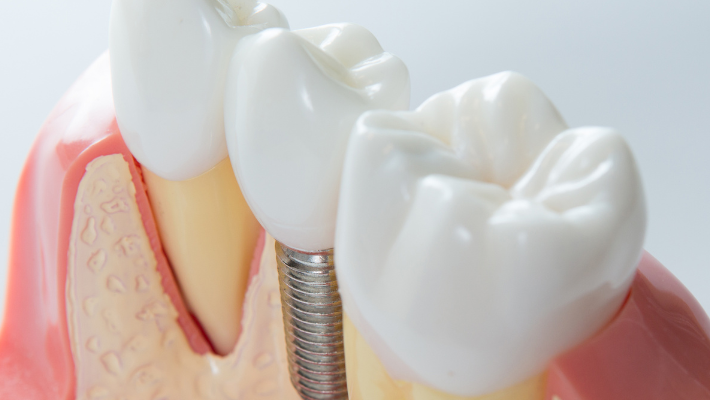
Dental implants represent a revolution in modern dentistry, providing a long-lasting and aesthetic solution for people suffering from tooth loss. These artificial devices are designed to replace missing tooth roots and serve as a support for a crown, bridge, or denture. Their growing popularity is due to their ability to restore jaw functionality and improve smile aesthetics, while resolving complex bite and alignment issues.
Dental implants offer many advantages over traditional solutions such as bridges or dentures. They provide a stable foundation for the new teeth, allowing for more natural functionality and feel. Additionally, unlike bridges, implants do not require modifying or trimming adjacent teeth, thereby preserving natural tooth structure.
Another significant benefit of implants is their contribution to overall oral health. They help prevent bone resorption that often occurs after tooth loss, by stimulating and preserving the jaw bone. It can also have a positive impact on the facial profile and prevent the sagging of features that can occur with tooth loss.
Bite and alignment problems can lead to difficulty chewing, tooth wear, and even jaw pain. Dental implants can be used as part of an orthodontic treatment plan to create strong anchor points, which can make it easier to move the remaining teeth into their optimal position. This can be particularly useful in cases where traditional teeth are missing and anchorage options are limited.
Despite their many benefits, dental implants are not without risks and considerations. The implantation process requires surgery, which involves healing time and risk of infection. Additionally, some patients may experience inflammatory reactions such as mucositis or peri-implantitis, which are conditions related to plaque buildup around the implant.
It is also important to note that implants require a long-term commitment to oral hygiene and regular visits to the dentist to ensure their longevity and prevent complications.
Dental implants are a valuable treatment option for people facing tooth loss, providing both a functional and aesthetic solution. They play a crucial role in resolving bite and alignment issues, thereby improving patients' quality of life. However, it is essential to discuss in detail with a dental professional to fully understand the benefits, risks, and necessary care associated with this procedure.
For those considering dental implants, it is recommended to consult a qualified dentist to assess their specific situation and determine the best treatment plan for their individual needs. With proper care, dental implants can provide a long-lasting, reliable solution for a healthy, confident smile.